New York City (CNN)Mario Gamiño was startled awake by the panicked-sounding bark of his pet cockapoo. When he got up, he realized water was rising quickly in his basement apartment in Flushing, Queens, so he immediately shook his wife awake.
Within minutes, Ida's floodwaters took nearly everything away. Their belongings were damaged and the tiny $1,200-a-month apartment they afforded as housekeepers was ruined. Gamiño and Bibiane Chamorro, along with their dog, Lily, barely escaped with their lives as the deadly storm swept through New York on September 1.
"It was terrible for us," Chamorro told CNN. "In the first few days, I cried a lot."
Now, with the holidays approaching, Chamorro, 53, said she and her 61-year-old husband are still suffering. "We are in trauma," she said.
More than three months after the remnants of Hurricane Ida pummeled New York City with record-breaking rainfall that submerged basements and killed more than a dozen people, displaced residents such as Chamorro and Gamiño are still living in temporary housing and waiting for more federal aid to come.
The storm devastated many of the city's working-class immigrant communities, which were already reeling from cascading crises such as the lack of affordable housing, inaccessible health care, the Covid-19 pandemic and the worsening impacts of climate change that fueled Ida.
The survivors CNN talked to said that since September, more than a dozen families had been temporarily living at a Radisson Hotel in Queens, near one of the world's busiest airports and in a location barely reached by New York City's sprawling subway system.
Residents there have also had to grapple with the uncertainty that comes with their temporary living situation: Days before Thanksgiving, for instance, city officials ordered the displaced families at the Radisson to relocate a borough away at a shelter in Brooklyn. The move would have disrupted their daily routines to get to school and work.
"It's just an untenable situation, knowing not only that they lost everything but that their usual routines have been completely disrupted," state Sen. Jessica Ramos, who represents the most impacted Queens neighborhoods, told CNN.
Ramos secured an extension for the families to stay longer. She said the goal is to find them permanent housing, a challenging proposition since the average rent for a 700-square-foot, one-bedroom apartment in Queens amounts to more than $2,600 a month.
"Some of these families have children and still have to make their way back to the original neighborhood in order to go to school every day, meaning that they're getting less sleep," she said. "Never mind the stress of the unknown and not knowing what was going to happen to them."
And amid the season of giving, the anxiety and trauma mounts for these survivors. For Gamiño and Chamorro, who used to celebrate the holidays, they said gift-giving and celebrating are now out of the question given their situation.
"Everything is different," said Chamorro, as she stood in the corner of their hotel room. Their minimal belongings spoke of what they lost during the storm.
"[Ida] changed our lives completely, and we're trying to begin our lives again."
A traumatic experience
Chamorro, who migrated from Colombia, still gets nightmares about her near-death experience, when the floodwaters slowly pushed her and her husband Gamiño, who's from Mexico, up against the ceiling of their Flushing basement.
Swimming her way out, carrying their pet Lily, she hit her head hard at the top of the doorway. It was so painful that she let go of the dog and Chamorro sank in the water. Gamiño, who was ahead of her, dove back into the muddy waters, struggled to push floating house items out of the way and pulled his wife out.
"He saved my life," said Chamorro, who swallowed raw sewage water and had to be hospitalized that night after getting severely ill with nausea and diarrhea. Lily, their dog, survived and came out shaking from the waters.
Nancy Pico, 49, from Ecuador, had lived in Woodside, Queens, for about 22 years. Now staying temporarily at the Radisson Hotel, she said she still gets emotional about what she witnessed the night Ida struck.
"I'm always reminded by it," Pico told CNN. "Whenever I come home, here, and I think about it, it makes me sad."
She lived on the second-floor of the same building where her neighbors, a Nepali immigrant couple and their 2-year-old son, were found dead after drowning inside their basement apartment during Ida's historic flooding.
Pico, who is battling breast cancer, only knew her neighbors in passing. But the 2-year-old's mom, Mingma Sherpa, knew Pico was ill and offered to help if she needed anything, she said.
When Ida struck and Pico saw floodwaters creeping into the main apartment building, she knew her basement neighbors were in trouble. She said she called friends and pleaded with the police and fire officials until it was too late.
Pico said officials waited until the waters receded onto the streets, but when they managed to get through, "It was too late. They died."
Most of the fatalities from Ida occurred in basement floodings. City officials later revealed that most of those basements had been illegally converted into rental properties, with landlords marketing them out for lower prices to attract low-income residents. Now many displaced families have nowhere to go, since they either lived in one of those basements or their homes have been infested with mold.
When Francisco Carrillo's Astoria basement apartment flooded after the storm, the 35-year-old student refused to go back because of environmental hazards. The water rose to his calves and eventually primed the apartment to grow mold, produce an unpleasant smell and fully deteriorate.
Carillo came to the US from Ecuador on a student visa, and is unauthorized to work, making it challenging for him to get housing due to the lack of income flowing in. Unlike the other guests at the Radisson, Carillo moved to the Brooklyn shelter where other Ida survivors are temporarily staying because it was more convenient for him. His goal, however, is to be able to work.
"I like to study, but I'd like to be able to work to improve my situation," Carillo told CNN. "I'm like in the middle of this hole, I can't do anything. I want to be positive but I don't have a job and you get sick sometimes, you have to buy food, and you have to have to get new clothes. It's hard."
Pico said once her stay at the Radisson expires, she plans to go home — not to Queens, but to her family in Ecuador.
"I don't think I can live there anymore, because I'm reminded of what happened," she said.
Disaster recovery disrupts traditions
Less than a 10-minute drive from the John F. Kennedy International Airport, but a world away from the bustle and high-rises of New York City's Manhattan, the Radisson Hotel in Queens became home for the surviving families.
As a single mom, Eileen Bendoyro, 52 and a former teacher, decided to stop working for a while to tend to her 13-year-old son, Christopher, who goes to school all the way in Long Island City, an hour away by the school bus.
Bendoyro's basement apartment in East Elmhurst flooded, destroying nearly everything she owned. The refrigerator tipped over, clothes were drenched with sewage water and electronics including her son's school laptop and game console were gone.
Around the corner from Bendoyro's apartment, President Joe Biden and other public officials spoke to the media when he visited the neighborhood to assess Ida's impacts.
But for Bendoyro and the rest of the families still displaced by Ida, a visit from the President and the federal aid they received weren't enough to put their lives back together.
"Nothing changed; it's still the same situation," Bendoyro told CNN. "With climate change, they need to change the system."
Marccus Hendricks, urban studies assistant professor and director of Stormwater Infrastructure Resilience and Justice lab at the University of Maryland, said the problem is that most recovery activity occurs within the first year after a disaster, then dramatically slows afterward, leaving households in a "perpetual state of recovery and displacement" that affects every aspect of their lives — including celebrating holidays.
"When it comes to disasters, we tend to overly focus on disaster recovery in the context of rebuilding structures as opposed to re-establishing social systems and processes," Hendricks told CNN. "The traditions and the social capital and the networks and celebrating holidays are part of re-establishing those social systems and processes — but we don't focus on those things."
While Bendoyro said she still has some means to give her son a gift, she knows this holiday season will be different. The climate crisis has upended many lives.
"The holidays this year are more emotional," she said. "People lost their lives from the hurricane, the Covid pandemic, and even now what happened in Kentucky. It's sad."
Like the couple from Flushing, Pico, the survivor from Woodside, said she won't be celebrating the holidays this year. "We don't have a place to cook," she said.
"This time is very sad," Carillo said. "I thought with time you're gonna feel better, but I'm a little emotional."
During Thanksgiving, state Sen. Ramos sponsored a dinner for the survivors in the Radisson. This Christmas, she hopes to spend time with the families once more.
"We're hoping to get together for the holidays," Ramos said. "I want to make sure that at the very least the children are able to have a holiday that brings a smile to their faces, despite all the hardships that they and especially their parents may be going through."
Chamorro and Gamiño, the couple that survived the basement floods in Flushing, plan to move out of the Radisson during Christmas week.
After losing all they had from the floods, Chamorro said they finally found a place to stay but they still need to start from scratch, beginning with getting a mattress and other necessities.
"Finding a place for us is very difficult in New York," she said. "But I thank God that we have a new place, and that we are alive."
"still" - Google News
December 19, 2021 at 09:00PM
https://ift.tt/3yHCuhh
Months after Ida flooded New York City, some residents still have no real homes for the holidays - CNN
"still" - Google News
https://ift.tt/35pEmfO
https://ift.tt/2YsogAP
Bagikan Berita Ini

























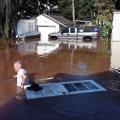

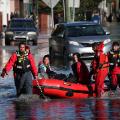
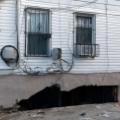
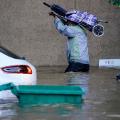


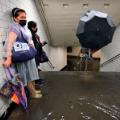
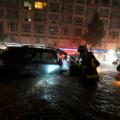

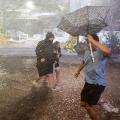
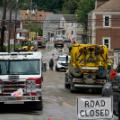
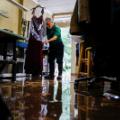
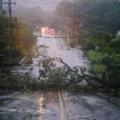

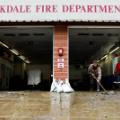

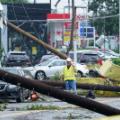
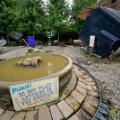
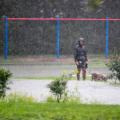
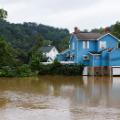
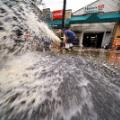
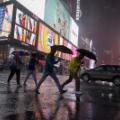

















0 Response to "Months after Ida flooded New York City, some residents still have no real homes for the holidays - CNN"
Post a Comment